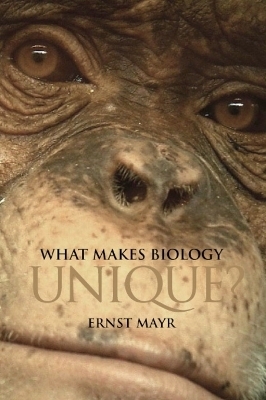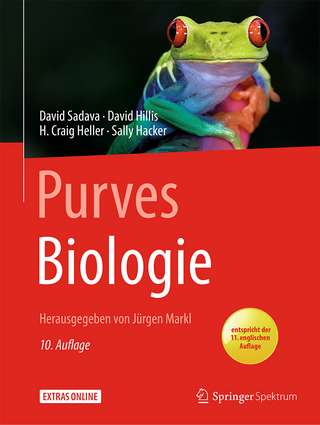
What Makes Biology Unique?
Considerations on the Autonomy of a Scientific Discipline
Seiten
2007
Cambridge University Press (Verlag)
978-0-521-70034-4 (ISBN)
Cambridge University Press (Verlag)
978-0-521-70034-4 (ISBN)
This book is a collection of essays from the most eminent evolutionary biologist of the twentieth century. Ernst Mayr explores biology as an autonomous science, the history of evolutionary thought, the contributions of philosophy to the science of biology, and the major ongoing issues in evolutionary theory.
This book, a collection of essays written by the most eminent evolutionary biologist of the twentieth century, explores biology as an autonomous science, offers insights on the history of evolutionary thought, critiques the contributions of philosophy to the science of biology, and comments on several of the major ongoing issues in evolutionary theory. Notably, Mayr explains that Darwin's theory of evolution is actually five separate theories, each with its own history, trajectory and impact. Natural selection is a separate idea from common descent, and from geographic speciation, and so on. A number of the perennial Darwinian controversies may well have been caused by the confounding of the five separate theories into a single composite. Those interested in evolutionary theory, or the philosophy and history of science will find useful ideas in this book, which should appeal to virtually anyone with a broad curiosity about biology.
This book, a collection of essays written by the most eminent evolutionary biologist of the twentieth century, explores biology as an autonomous science, offers insights on the history of evolutionary thought, critiques the contributions of philosophy to the science of biology, and comments on several of the major ongoing issues in evolutionary theory. Notably, Mayr explains that Darwin's theory of evolution is actually five separate theories, each with its own history, trajectory and impact. Natural selection is a separate idea from common descent, and from geographic speciation, and so on. A number of the perennial Darwinian controversies may well have been caused by the confounding of the five separate theories into a single composite. Those interested in evolutionary theory, or the philosophy and history of science will find useful ideas in this book, which should appeal to virtually anyone with a broad curiosity about biology.
Ernst Mayr (1904–2005) was Professor Emeritus and former Director of the Museum of Comparative Zoology at Harvard University. For his contributions as an evolutionary biologist, taxonomist, ornithologist, as well as historian and philosopher of biology, Mayr was hailed as 'the Darwin of the 20th century'.
Introduction; 1. Science and sciences; 2. The autonomy of biology; 3. Teleology; 4. Analysis or reductionism; 5. Darwin's influence on modern thought; 6. Darwin's five theories of evolution; 7. Maturation of Darwinism; 8. Selection; 9. Do Thomas Kuhn's scientific revolutions take place?; 10. Another look at the species problem; 11. The origin of human; 12. Are we alone in this vast universe?
| Erscheint lt. Verlag | 16.4.2007 |
|---|---|
| Zusatzinfo | 1 Tables, unspecified |
| Verlagsort | Cambridge |
| Sprache | englisch |
| Maße | 154 x 228 mm |
| Gewicht | 340 g |
| Themenwelt | Naturwissenschaften ► Biologie |
| ISBN-10 | 0-521-70034-5 / 0521700345 |
| ISBN-13 | 978-0-521-70034-4 / 9780521700344 |
| Zustand | Neuware |
| Haben Sie eine Frage zum Produkt? |
Mehr entdecken
aus dem Bereich
aus dem Bereich
was Mikroben, Tiere und Pflanzen eint und wie sie uns ernähren
Buch | Softcover (2024)
Lenos (Verlag)
32,00 €
was wir alle wissen sollten
Buch | Softcover (2023)
Mitteldeutscher Verlag
24,00 €


